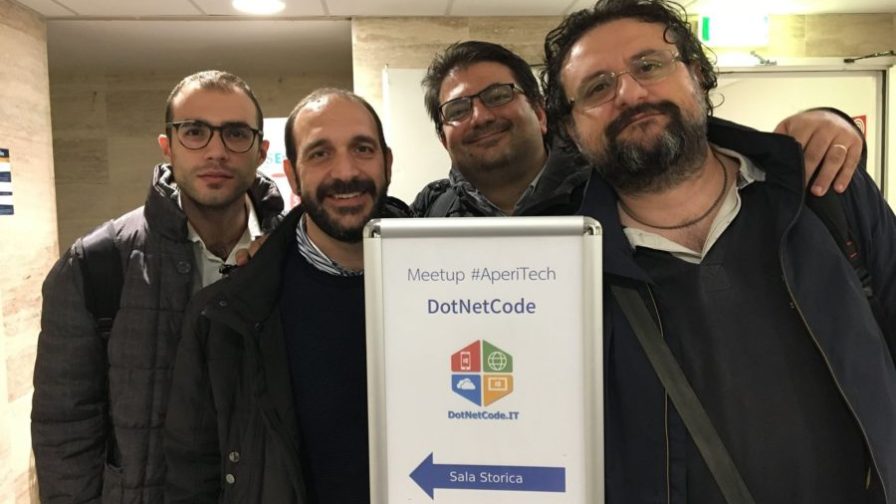
Hello Fabio, at one of the #Aperitech meetups you delivered the talk entitled “.NET & Micro ORM”. What motivated you to speak about this topic?
As a community, we have focused on everything related to DotNetCore, released a few years ago, both on its architectural aspects and on the development in the strict sense. With this in mind, we held some meetups last year focused on microservice architectures, which are becoming popular again. This is why I decided to include Micro ORM, which is a sort of halfway point between the classic custom data access provider and everything in the ORM universe. It’s a third way that’s well established in microservice architectures and also in other very common use scenarios for those who work in this area. Or when you have to mount an entire system from scratch. It was always my desire to explore microservices in a way that’s a bit off the beaten track in Italy, but which is convenient to know, especially when you want to control costs and you don’t have a huge database.
Could you tell us more about it?
I talked about a specific type of ORM, Dapper, which is the most used one in the DotNet world. Dapper was created by the owner of Stack Overflow, and he published it as an open source project. So the usage scenarios, even very large and complex ones, are there. In fact, it is also used at the enterprise level. These are architectural choices that must be made based on knowledge of the subject and the freedom of development granted by the project. The Italian scenario is a bit special, very reluctant to keep up-to-date, and often you have little freedom of action as a developer.
Thanks for sharing this with us. We’re really looking forward to your next talk! Could you tell us a bit more about yourself?
I’m a Software Architect and I’m about to change my job at the moment and I am going to work at Almaviva. I’m the member of Rome’s DotNetCode community, founded by a friend of mine and my ex-colleague (Microsoft MVP). I believe that communities are the best way, different from traditional online forums and official conferences, to stay current with the world of programming.
In my free time, apart from programming, I have some slightly old-fashioned hobbies: I read, go to the cinema and occasionally watch a football game, followed by hot baths and Voltaren to remedy the physical toll on the quadriceps. I also enjoy spending time with my family.
Could you tell us why you chose to become a developer?
Programming has always been my passion. In the nineties, I bought the Jackson books, from which I learned and copied the code examples, then spent hours to understand why they didn’t work, and then finally discovered a missing comma or a printing error.
Despite having done completely different studies, I registered myself to the Faculty of Electronic Engineering with a Biomedical focus. My father still hasn’t forgiven me for this, but when I realised it wasn’t my thing, I decided to devote myself fully to programming.
At that time, I started assembling PCs in the afternoon with friends from the university, and I’ve never left the world of technology and development.
I’d never change my job; I tried to lead the life of a billionaire, but I didn’t manage it and decided that being a programmer is much better.
Do you have any advice for those who are thinking about becoming a programmer?
Always keep yourself updated. It’s the basis of everything. Now that technological evolution is happening so fast, if you don’t stay up-to-date, ignoring tools and innovations that can significantly help you with development, you make your life harder. In Italy, many of the companies are slow at implementing updates, but this isn’t an excuse for you to rest on your laurels. Despite this situation, the overall situation for Italian developers is not bad when it comes to the quality of the code and the products being released. For this reason, our community aims at entering the educational reality, especially technical institutes, so as to organise more systematic training.




